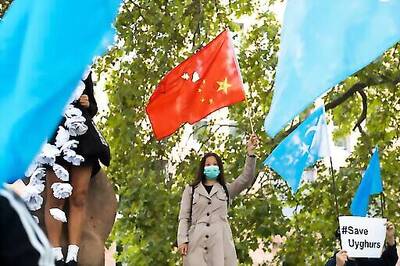
views
SAN FRANCISCO: A Chinese researcher visiting Stanford University who was charged with visa fraud after she allegedly hid her military background is facing new charges, federal prosecutors said.
A federal grand jury charged Chen Song, 39, with obstruction of justice, destruction of documents and making false statements to a government agency, the U.S. Attorneys Office said Thursday.
We allege that while Chen Song worked as a researcher at Stanford University, she was secretly a member of Chinas military, the Peoples Liberation Army, U.S. Attorney David Anderson said in a statement. When Song feared discovery, she destroyed documents in a failed attempt to conceal her true identity. This prosecution will help to protect elite institutions like Stanford from illicit foreign influences.
Song was one of four Chinese scientists living in the U.S. and doing research at universities who were arrested last July by the Justice Department, which accused them of lying about their status as members of the Peoples Liberation Army. All were charged with visa fraud.
The FBIs investigation revealed Song Chen took active steps to destroy evidence of her official affiliation with the Chinese military, including her current PLA credentials depicting her in military dress uniform, FBI Special Agent in Charge Craig Fair said.
Song entered the United States on Dec. 23, 2018, using a J-1 non-immigrant visa to conduct research at Stanford. In the application, she described herself as a neurologist who was coming to the U.S. to do research at Stanford related to brain disease. She also said that she had served in the Chinese military only from Sept. 1, 2000, through June 30, 2011, and that she worked for Xi Diaoyutai Hospital in Beijing.
Federal prosecutors said in court documents Song’s statements were false and that she was a member of the Chinese military when she entered and while doing research at Stanford. They also said the hospital she listed on her visa as her employer was a cover for her true employer, the PLA Air Force General Hospital in Beijing.
Song’s attorney, Edward Swanson, did not immediately return an email Friday from The Associated Press seeking comment.
If convicted, Song faces up to 10 years in prison for the visa fraud charge; up to 20 years for each of the obstruction and alteration charges; and up to five years for the false statements charge.
Song is scheduled to appear in court April 7 for a pretrial conference, with a trial set to begin April 12.
Disclaimer: This post has been auto-published from an agency feed without any modifications to the text and has not been reviewed by an editor
Read all the Latest News, Breaking News and Coronavirus News here

















Comments
0 comment